
You can read the UKC review of UpsideDown Wales Here: UKC Review
For more information on the Joe Brown DVD and the UpsideDown Wales DVD:
Both DVD's have been put together by the team of George Smith, Ray Saunders and Alun Hughes.
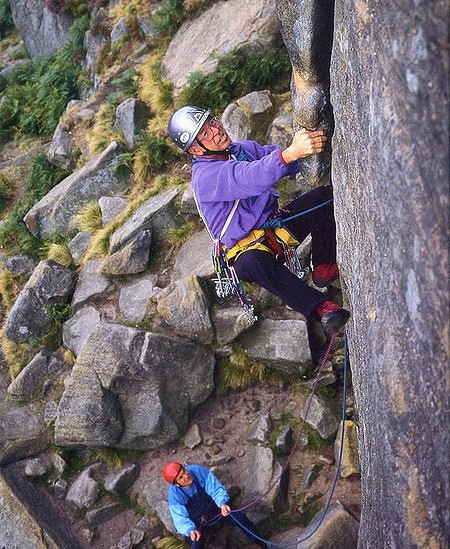
Review by Gordon Stainforth
This Smith-Saunders-Hughes production is to be commended for eliciting such a relaxed interview from Joe Brown, who is notoriously reticent about appearing in front of a camera. For anyone with any interest in climbing history it is essential viewing.
Despite his pre-eminence in British climbing history, Joe is someone who has never courted publicity, or done anything other than climb for climbing's sake. He could perhaps best be described as the archetypal climber's climber, who shuns any kind of self-aggrandisement. People who understand what climbing is all about, and what it is not about, will understand him completely. People who are interested in the media and show business, and the continual need to 'rate' themselves or be rated, probably won't. Joe never saw himself that way, indeed he says in the interview that he regarded quite a few (e.g. Don Whillans, Paul Ross and Allan Austin) as his equals. When asked if he is happy about being called a legend, he says, 'No, not all that much. It makes you become shy and withdrawn.' He says that with an absolutely straight face.
(I'll have to say – in parenthesis, because overall I enjoyed it so much – that the interview is not particularly well crafted. There is a rather portentous commentary, surprisingly awkwardly read by George Smith. The use of still pictures, interesting as they are, is haphazard and sometimes oddly out of context, e.g. two early pictures of Joe on The Sloth are shown when he's talking about his first three to four weeks of climbing. And Ray Saunders' strident and repetitive music I found quite irritating after a while. It is strangely inappropriate, conveying no sense whatever of the historical period in which Joe operated.)
The strength of the interview is all in the content, which gives full rein to Joe's endearing personality and his whole-hearted enthusiasm for the sport. He speaks with great clarity, and when occasionally he punctuates his conversation with the expression 'you know' he means, quite literally, 'You will know this (even though you belong to a later generation of climbers)'.
Everything he says suggests a kind of deep natural intellect, which sometimes wells to the surface. For example, he talks very interestingly about the role of imagination in climbing:
'The real thing about climbing, that made it in a way easy, was imagination. Because, if something was described in a book as being difficult, with tiny holds and things, in your own mind you could make them as small as you imagine they've got to be to get that feeling on them. You were going to attempt something that was way beyond you, but you were going to have a look anyway. And you found it wasn't beyond you – it wasn't even hard.'
He's deliciously deflating about Murray's overblown description (in 'Mountaineering in Scotland') of a pitch on the Clachaig Gully in Glencoe. 'He talks about these tiny nebulous holds, you know, like a fairy stepping on microscopic rugosities and things, and you'd get to that place ... and you could probably, if you wanted to, go across it with your hands in your pockets! It's got big holds. Climbing to a great extent is about what goes on in your head.'
Joe's account of his early climbing with his mates, when they had no idea what they were doing and found themselves climbing new routes almost by mistake, retains a delightful innocence. When they looked at the guidebook after repeating Lot's Groove on Glyder Fach, they read that it had 'the roughest rock in Wales, with the exception of Clogwyn d'ur Arddu. We thought, bloody hell, if Cloggy's rougher than this you'd be able to climb anywhere!'
He tells us how he's deliberately 'climbed hundreds of times in the rain, on routes of all standards' to 'feed' his 'thirst for adventure', and yet he's always thought 'what a fantastic day I've had!' He bubbles on about his 'fantastic memories':
'Anyone who does new routes will agree, you just can't beat it. There have been lots of occasions when I've been sorry to get to the top, because it's finished, and it's been so fantastic you don't want it to stop.' (Like sex, he hints.)
We also learn some interesting details along the way. For example, the only reason he didn't complete the first ascent of White Slab (i.e. do the last pitch) was that he was feeling sick from a bad sandwich that day. And the idea of sliding down the Snowdon mountain railway track on flat stones came from Mrs. Williams at the Half Way House on the way up to Cloggy. That was the way the workman who'd built the railway had returned home at the end of the day, she told them.
The overriding theme of the interview is Joe's emphasis on adventure, which has always been, for him, the only reason for climbing. 'The bigger and more outrageous things are, the more exciting the adventure. The feeling of excitement and pleasure, you can't convey it really. You can either do it and know it, or you'll never know it.'
Then he makes an amazing statement, suggesting that he was privileged in the late 1940s by comparison with the lads of today. 'I've been lucky in many ways. Lucky I found climbing at the time I did. If you started now it would be very difficult to have the opportunities I had.'
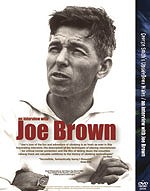
Er, yes, Joe. In an age in which the sport has become somewhat murky at the edges, Brown remains the great central beacon that transcends his own extraordinary place in history and shines out into the future.




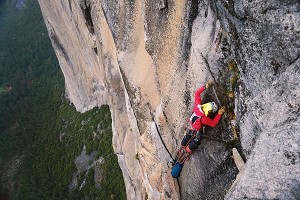
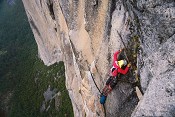
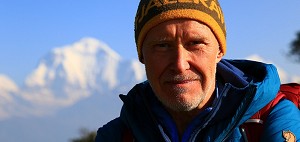

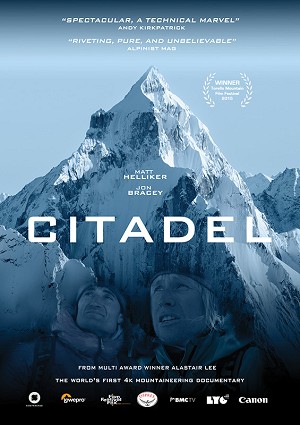
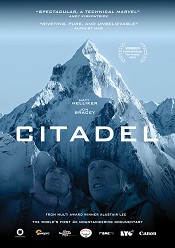
Comments